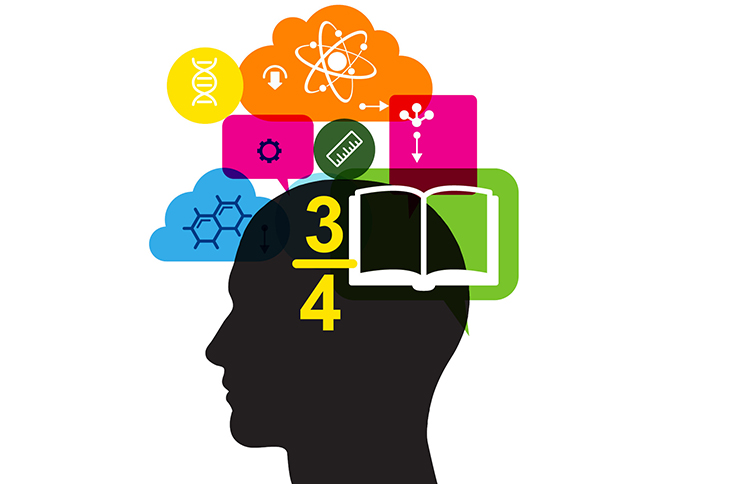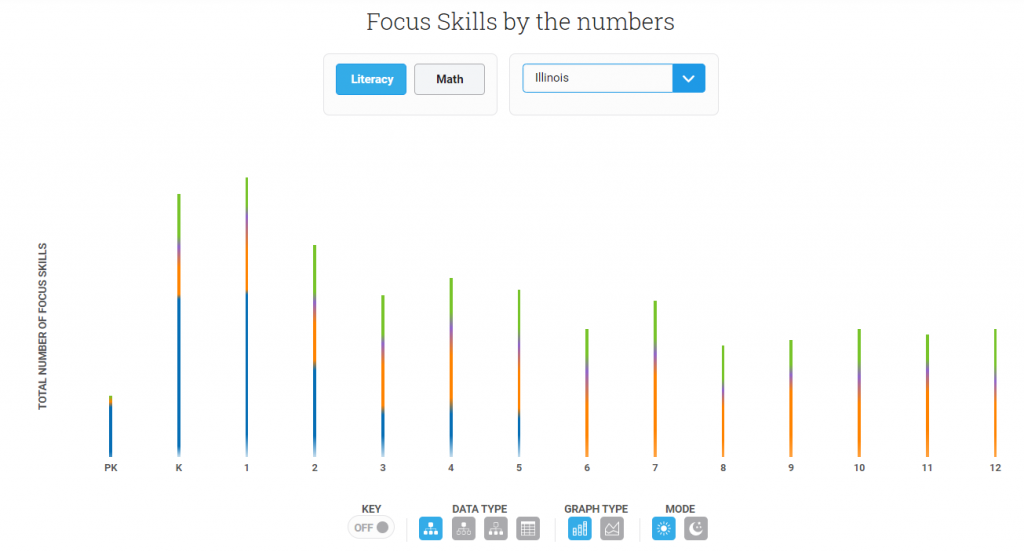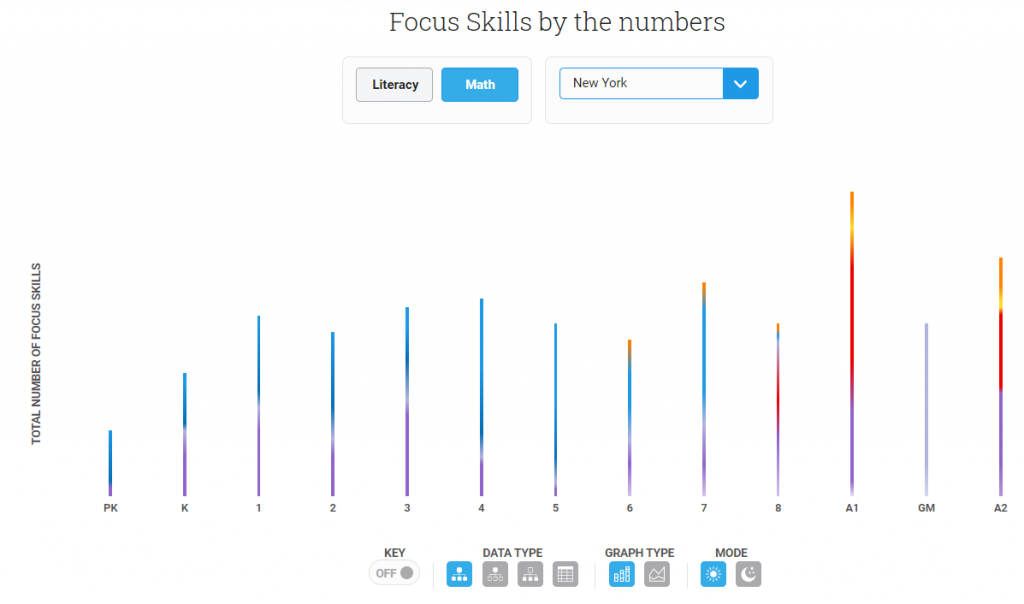
The following blog was contributed by Dr. Gene Kerns, Chief Academic Officer at Renaissance Learning, Inc.
Note: This is an excerpt from a blog series on using assessment data to address learning gaps during the 2020–2021 school year. To read the series, click here.
As you reflect on the many unknowns around Back-to-School, you may feel as if you’re facing another “first year of teaching”—but with one key difference. This time, you know exactly what to do. Identify the most critical skills for learning, and focus instruction there. But how do you know which skills are most critical?
The “backbone” of Renaissance Star Assessments is an empirically validated learning progression for reading and math. Our experts take each state’s educational standards and break them down into discrete, teachable skills, then organize them into the ideal teachable order, so educators can help students move along the pathway to greater mastery.
During this process, we identified a subset of skills that are fundamental to students’ development at each grade level—Focus Skills™.
When you can easily identify the most critical skills, you know exactly where to focus instruction to move students forward. You also know the most critical skills from prior grades, which help determine what to review and—when needed—what to set aside. For BTS 2020, Focus Skills can become your “vital few,” with intense work on these skills producing the greatest returns in student learning.
So, where can you see Renaissance Focus Skills?

They’re highlighted on the Instructional Planning Report in Star Reading, Star Math, and Star Early Literacy. Teachers can generate the Instructional Planning Report at the class level to identify the “vital few” for core instruction. Likewise, teachers can create instructional groups based on students’ Star data and the report for each group. Finally, teachers may choose to run the report for individual students.
Additionally, you can see Focus Skills in the Renaissance Planner, which enables you to view more details about each skill (related academic vocabulary, prerequisites, state standards alignment, and grade-level domain expectations).
Educators who use Star have multiple options to access Focus Skills. But given the urgency around reversing COVID-19-related learning loss, we’re making the full list of Focus Skills available to all educators, parents, community members, and students in an interactive, engaging format.

We encourage you to explore the reading and math Focus Skills for your state and review the distribution of Focus Skills across grade levels. Equipped with this knowledge, you can reasonably infer the grade levels with the greatest potential for student learning loss, as determined by the number of Focus Skills. You can also use these lists to identify the most critical building blocks of learning for each grade, so you know where to focus your efforts for the greatest return in student growth.
Now that you know the power of Focus Skills and how to access them, we hope you see why these skills will be critical in the new school year—and the key role they can play in helping students make up lost ground resulting from this spring’s unexpected school closures.
We encourage you to explore the reading and math Focus Skills for your state and review the distribution of Focus Skills across grade levels. Equipped with this knowledge, you can reasonably infer the grade levels with the greatest potential for student learning loss, as determined by the number of Focus Skills. You can also use these lists to identify the most critical building blocks of learning for each grade, so you know where to focus your efforts for the greatest return in student growth.
About the Author
 A third-generation educator, Dr. Gene M. Kerns was born with a passion for learning. Over the past two decades, he’s served as a public school teacher, adjunct faculty member, professional development trainer, district supervisor of academic services, and academic advisor at one of the nation’s top edtech companies. Dr. Kerns earned a doctor of education in educational leadership from the University of Delaware as well as a master of science in secondary curriculum and instruction and a bachelor of arts in English education from Longwood University in Virginia.
A third-generation educator, Dr. Gene M. Kerns was born with a passion for learning. Over the past two decades, he’s served as a public school teacher, adjunct faculty member, professional development trainer, district supervisor of academic services, and academic advisor at one of the nation’s top edtech companies. Dr. Kerns earned a doctor of education in educational leadership from the University of Delaware as well as a master of science in secondary curriculum and instruction and a bachelor of arts in English education from Longwood University in Virginia.